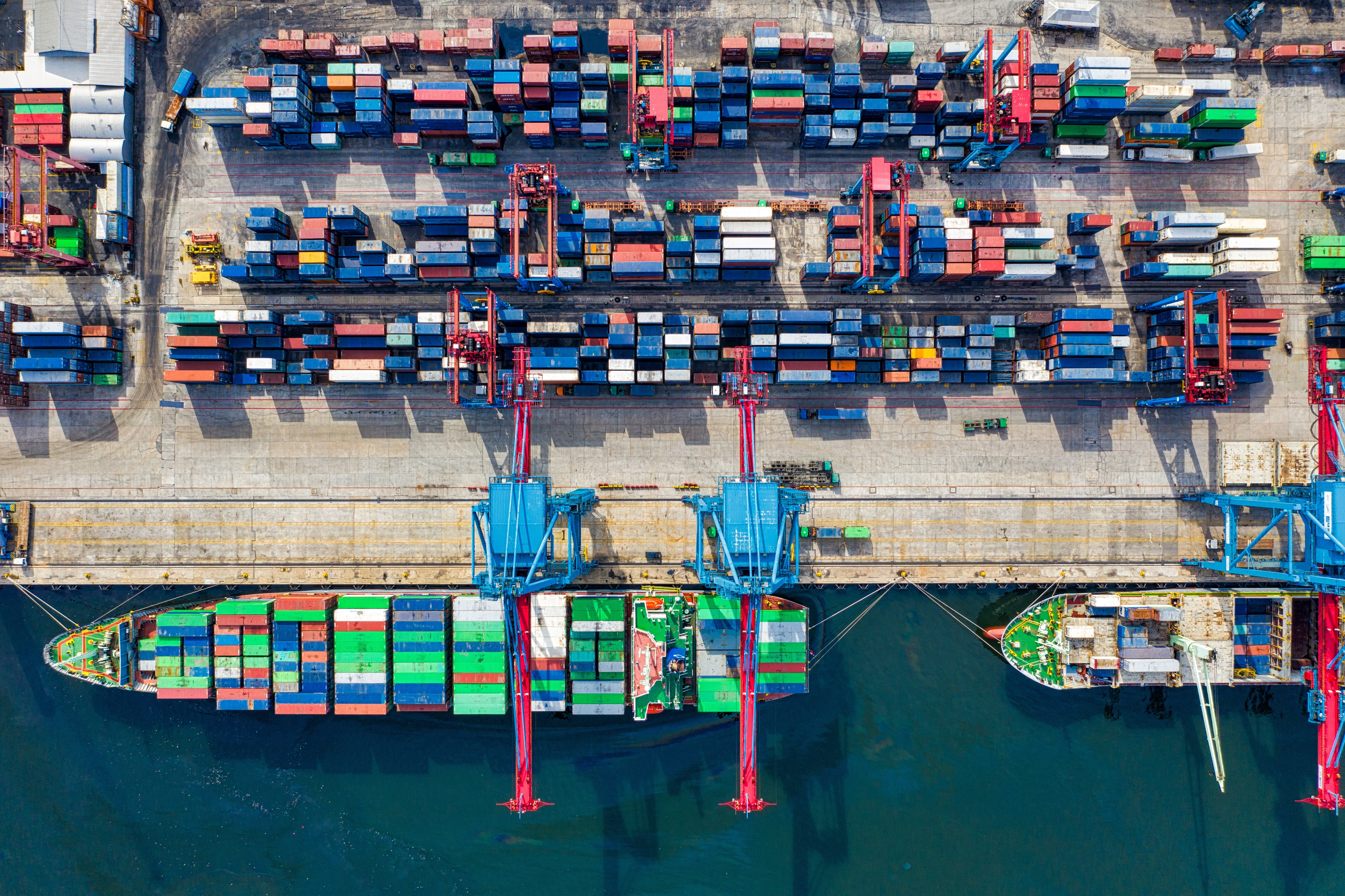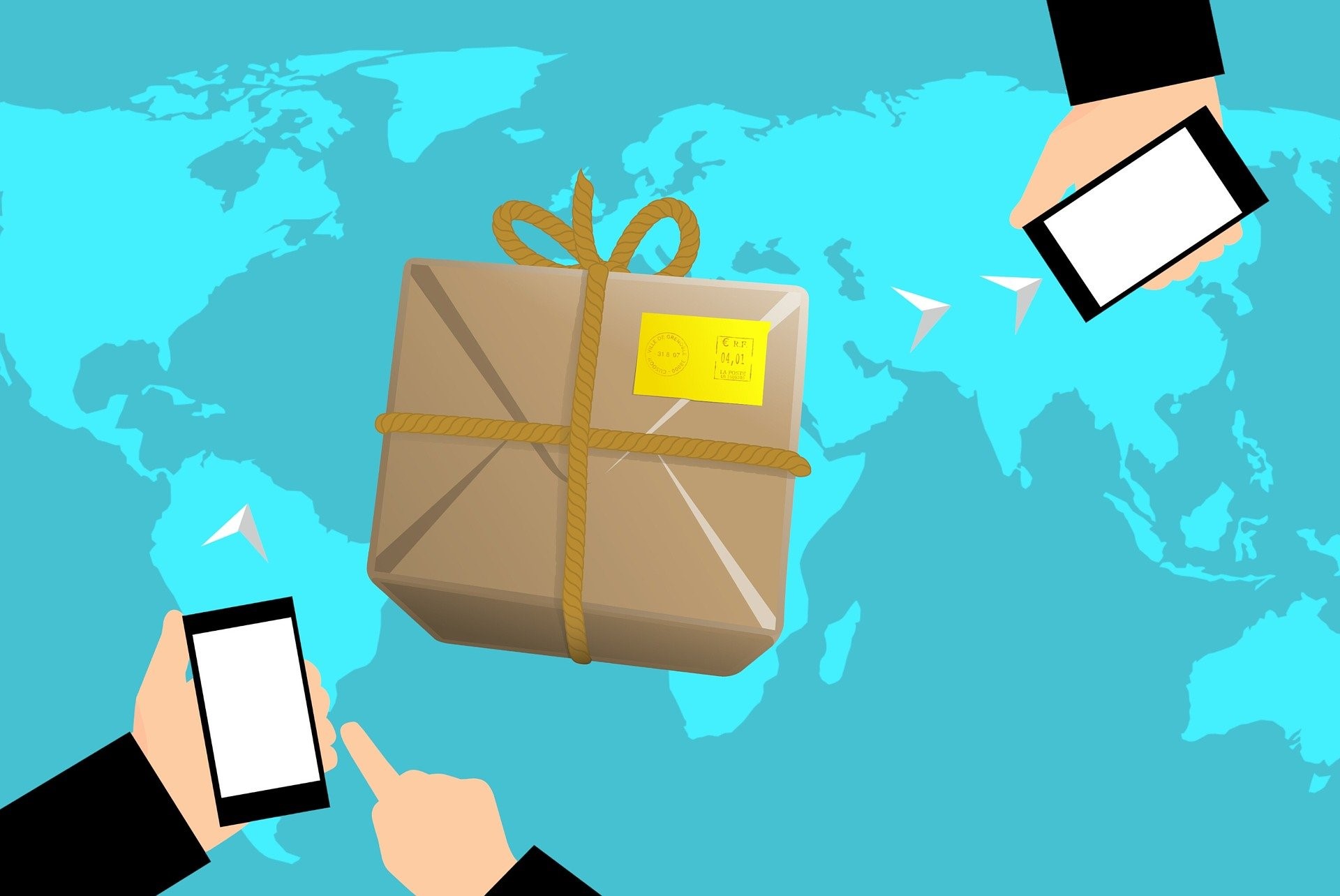Blockchain paves the way to end-to-end digital customs processing


Stuttgart / Dortmund, May 11, 2021 – Stuttgart-based software provider AEB SE and the Fraunhofer Institute for Material Flow and Logistics IML are working together on a blockchain-based customs solution. The goal of the project, which is part of the Blockchain Europe research initiative: Develop end-to-end digital and largely automated customs processing.
To achieve this goal, the partners want to make all customs documents available in a digital format and thus make paper-based documents obsolete. The blockchain technology is supposed to enable secure storage of all transactions and documents for all parties involved and to update them in accordance with the physical flow of goods. This will make their contents traceable at any time for exporters (consignors of goods), importers (consignees of goods), logistics partners, transport companies, customs brokers, and customs authorities, for example.
- AEB and Fraunhofer Institute for Material Flow and Logistics IML cooperate in the Blockchain Europe research initiative
- The partners are working together on blockchain-based customs processing for the supply chains of the future
Goals of the project:
- Develop automated and paperless processes for customs processing
- Better integration of customs and logistics processes
- Enabling transfer of information and documents via blockchain – tamper-proof, across borders, and open source
First step: Digitalization of the export accompanying document
In a first step, the project focuses on the export accompanying document. The responsible customs office uses this document to confirm that the export is permitted and sends it to the exporter as a PDF. The exporter prints out the document and encloses it with the export consignment.
The consignee in the third country is usually not digitally integrated into the export process and receives a lot of relevant information only when the goods arrive – and often on paper. They then have to reenter the data in digital form for their import declaration.
“Due to the numerous parties involved in the customs process, the current paper-based process for the export accompanying document often causes a great deal of effort,” explains Dr. Ulrich Lison, global trade expert and member of the AEB Board of Directors. “This is exactly the starting point of our project to digitalize the export accompanying document along the entire process.” As a result, all parties involved will gain transparency over the process, manual effort will be reduced, and time-consuming on-site checks can be moved to the digital sphere.
Interactive development process
The project is still in its early stages. To achieve initial results quickly, the partners rely on an agile approach. “Using an agile scrum process, we want to digitalize an initial prototypical customs process,” explains Roman Koller, Customs Subproject Manager at Blockchain Europe.
For further implementation steps, Blockchain Europe is looking for more companies interested to participate – including companies affected by Brexit. Due to the UK's withdrawal from the EU and the resulting need for export and import declarations, the customs topic has become drastically more important in the trade of goods with the UK.
“We would welcome the participation of experts in customs processing as well as companies that are only just starting out in dealing with the challenges of customs clearance in global trade, for example due to Brexit,” explains Roman Koller. “Together with Blockchain Europe, companies can make a contribution to end-to-end digital customs processing and, as validation partners, test the planned prototype processes in practice. Maybe one of the few positive outcomes of Brexit will be an additional impetus for digitalization.”
About Blockchain Europe
Blockchain Europe has been set up as a project to establish a European blockchain institute. The project is funded with 7.7 million euros by the Ministry of Economic Affairs, Innovation, Digitalization and Energy of the State of North Rhine-Westphalia. The project consortium includes the Dortmund Fraunhofer Institutes IML and ISST as well as the Chair of Enterprise Logistics and the Chair of Materials Handling and Warehousing at the TU Dortmund University. Following the project period, it is to be established as a sustainable and permanent facility.
About AEB
AEB software supports the global trade and logistics processes of businesses in the industrial, commercial, and service sectors. More than 5,500 customers are using AEB solutions in 80 countries for shipping, transport and warehouse management, customs clearance, import and export management, sanctions list screening, and export controls. AEB’s portfolio extends from ready-to-go software products from the cloud to a tailored but highly adaptive logistics platform.
AEB has more than 500 employees. The software company has its main offices and on-site data centers in Stuttgart (Germany). Weitere deutsche AEB-Standorte gibt es in Hamburg, Düsseldorf, München, Soest, Mainz und Lübeck. AEB has international offices in the United Kingdom, Singapore, Switzerland, Sweden, the Netherlands, the Czech Republic, and the United States. More information: www.aeb.com
Press contact
AEB SE
Jens Verstaen
Corporate Communications
Phone +49 (0)89 14 90 267 16
jens.verstaen@aeb.com
www.aeb.com
Blockchain Europe
Britta Scherer
Communications and Community Management
Phone +49 (0)231 9743 413
britta.scherer@iml.fraunhofer.de
https://blockchain-europe.nrw/
 Fraunhofer Institute for Material Flow and Logistics IML
Fraunhofer Institute for Material Flow and Logistics IML